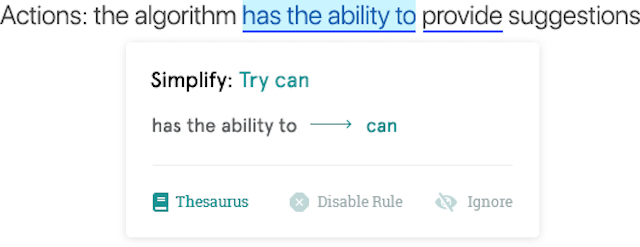
Business writing is such a fascinating application of writing. It’s very pragmatic. Strong business writing can propel both careers and businesses. It’s the channel that transmits nearly all business work and insight and interaction. It flows up, down, laterally, internally, and externally to customers. It’s the foundation of business.
Why then, is it so bad?
Business writing is notorious for bloated, business-speak nonsense. Despite its off-putting name, I highly recommend the book Why Business People Speak Like Idiots. It was originally published in 2005, yet it sadly still captures the epidemic of business-speak so well.
The first sentence of chapter 1 is probably my favorite quote from this book, and sums up the premise well:
"Unless a businessperson gets cornered into speaking directly to live people - say, English teachers bearing assault rifles - we know what to expect: an indigestible main course of catchphrases and endless prose, with not a lot of substance for dessert."
In this post, I am going to outline six tips for better business writing.
1. Eliminate Jargon
Forbes Magazine conducts a Jargon Madness Tournament on Twitter, asking readers to submit the business writing jargon that most annoyed them. The "winners" advanced to qualifying and final rounds. From Forbes:
The next time you feel the need to reach out, touch base, shift a paradigm, leverage a best practice or join a tiger team, by all means do it. Just don’t say you’re doing it. Because--and please believe us--all that meaningless business jargon makes you sound like a complete moron.
Jargon Madness Tournament Top-10 Winners:
- Drinking the Kool-Aid
- Leverage
- It is what it is
- Empower
- Open the kimono
- Lots of moving parts
- Reach out
- Give 110% (Is this even mathematically possible?)
- Corporate values
- Bleeding Edge
Real jargon—technical language among real experts—isn’t the problem. Gratuitous jargon bantered about in business writing is the problem.
A fun and useful—but admittedly rude—website to detect jargon is Unsuck It. Enter the questionable phrase into the search bar, and the site will “unsuck it” and offer clearer alternatives.
2. Short Words are the Backbone of Good Business Writing
I’ve long admired Richard Lederer’s writing on language. In his 1991 book, The Miracle of Language, Lederer sings the praises of the short word:
When you speak and write, there is no law that says you have to use big words. Short words are as good as long ones, and short, old words—like sun and grass and home—are best of all. A lot of small words, more than you might think, can meet your needs with a strength, grace, and charm that large words do not have...
Here is a sound rule: Use small, old words where you can. If a long word says just what you want to say, do not fear using it. But know that our tongue is rich in crisp, brisk, swift, short words. Make them the spine and the heart of what you speak and write. Short words are like fast friends. They will not let you down.
Did you notice that Lederer’s passage was written entirely with one-syllable words? He is making a point, of course, but business writers can use this same single-syllable word technique at emphatic moments. This is one of my favorite business writing tips. When you state your recommendation or your main point, deliberately shift your varied-syllabled words to all single-syllable. It has the same effect as staccato music. Your reader will unconsciously sit up and pay attention.
3. Unsmother verbs
Smothered verbs are action words that are buried in a group of other words. Often they are verbs that were turned into nouns, called nominalizations. Smothered verbs are one of the most common mistakes I see when teaching business writing courses. Eliminating the other words creates a clearer, more forceful sentence.
Here is an example:
The authors will be holding a discussion about registration, to better give instruction to the participants who have to make a choice between which sessions to attend. (27 words)
Better:
The authors will discuss registration, to better instruct the participants who have to choose which sessions to attend. (18 words) - This is a 33% reduction in length in one sentence. Envision the impact on a long document!
Explanation:
These are smothered verbs. There were six unnecessary words in that single sentence. Un-smothering your verbs is an opportunity to improve your business writing profoundly. Active, vibrant, un-smothered verbs bring both vitality and clarity to your writing.
Smothering phrases often begin with a form of be, give, have, make or take. The noun in the phrase often ends with -ion or -ment. Here are some examples of smothered verbs with their clearer alternatives:
- Have a suspicion/suspect
- Make an agreement/agree
- Hold a discussion/discuss
- Give instruction to/instruct
- Make a choice/choose
You can make sure that you're making your writing as punchy and readable as possible by using an editing tool like ProWritingAid. This will save you time spend spotting -cion and -ment endings: the app will spot them for you! The ProWritingAid Style Report will highlight all of your smothered verbs so you can replace them, as you can see below:
Using ProWritingAid will help you make the greatest impact on your writing in the smallest amount of time.
4. Avoid Wimpy Verbs that Need Modifiers
Verbs connote a state of action or a state of being in a sentence. And, they can be evocative.
Choose one strong verb that can pivot action and emote a description, instead of choosing a wimpy verb that needs a modifier to help it in the sentence.
Example: Dolores walked into the room slowly and quietly with her head averted, hoping no one would notice she was late. Dolores slinked into the room, hoping no one would notice she was late.
Evan worked on the technical aspect of the project plan. Evan engineered the project plan.
There are so many powerful and evocative business verbs:
- Accomplished
- Administered
- Assessed
- Centralized
- Created
- Delivered
- Enforced
- Exceeded
- Improvised
- Interpreted
- Produced
- Reconciled
- Renegotiated
- Simplified
- Surpassed
- Terminated
- Trained
- Vitalized
Verbs are the pivot point of a sentence so choose a verb with power that can stand on its own in a sentence.
5. Format for Easy Scan

After all the work business writing put into writing well, we have to accept that business readers don’t read everything we write. They can’t. They’re overloaded and too busy.
Accept that your readers are scanning and make it easy for them to absorb information.
Helpful format elements are:
- Headings above document categories
- Indenting text to show it’s a sub-element of the previous information
- Bullet and number lists
- Lots of white space
- Short paragraphs
- Appropriate use of bold and emphatic text
6. Shorten Sentences to Ease Complexity
Much business writing, by function, is complex and technical. Short sentences convey technical and complex information better than longer sentences.
The common writing habit of “, and” in sentences is the prime culprit for too-long sentences.
Use the search function of your word processor to find “, and” or use the ProWritingAid Sentence Length Report to check for overly long sentences.
You will likely find statements like this:
- Training with us is easy, and you can hand us the job and just walk away. You won't worry about a thing, and you can get back to what you do best. Relax knowing your project is moving seamlessly to completion, and you can simply calculate the savings.
Break this up the longer sentences:
- Training with us is easy. Hand us the job and just walk away. Don’t worry about a thing. Get back to what you do best. Relax knowing your project is moving seamlessly to completion. Simply calculate the savings.
An easy-to-remember guiding mantra for business writing is: “Write to Express, Not to Impress.”


